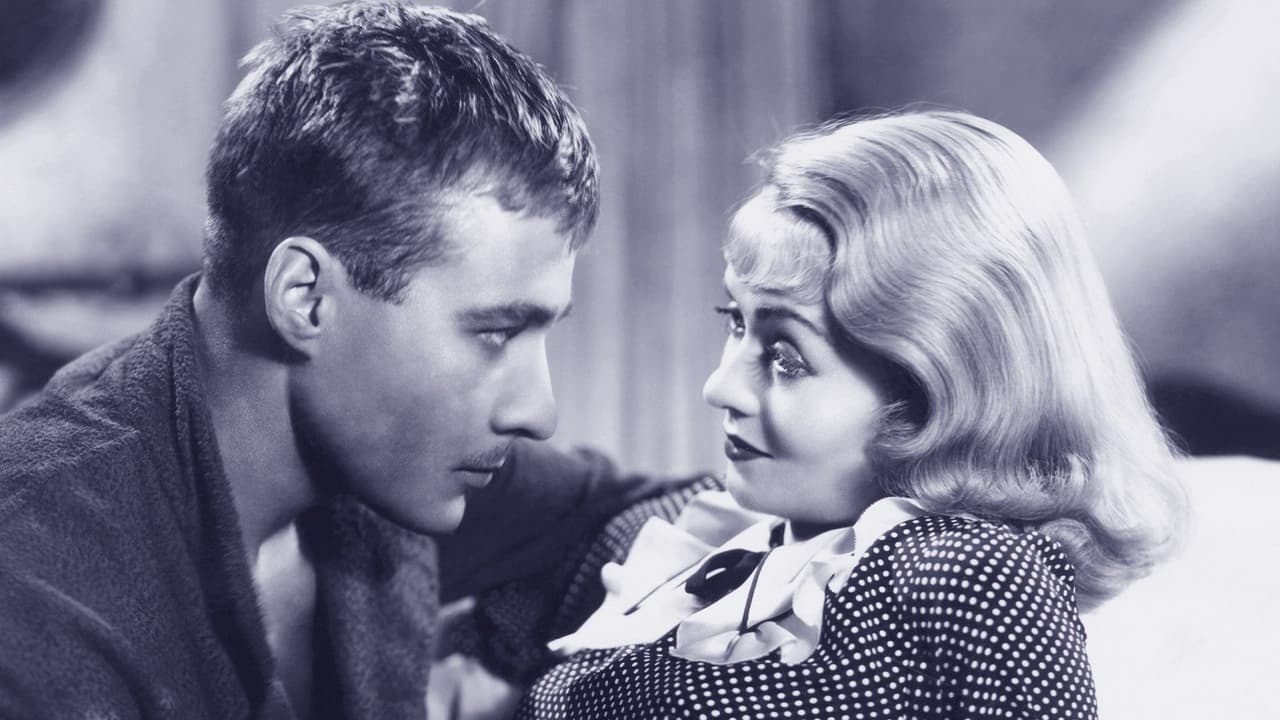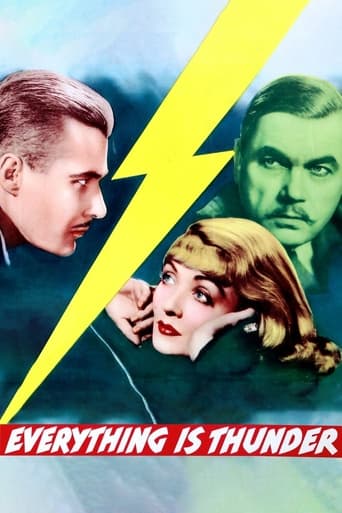Tetrady
not as good as all the hype
Reptileenbu
Did you people see the same film I saw?
Roy Hart
If you're interested in the topic at hand, you should just watch it and judge yourself because the reviews have gone very biased by people that didn't even watch it and just hate (or love) the creator. I liked it, it was well written, narrated, and directed and it was about a topic that interests me.
Lidia Draper
Great example of an old-fashioned, pure-at-heart escapist event movie that doesn't pretend to be anything that it's not and has boat loads of fun being its own ludicrous self.
mark.waltz
The chemistry between sweet Berlin street girl Constance Bennett and British soldier Douglas Montgomery makes this World War I melodrama palatable. Montgomery, pretending to be a German soldier, is arrested and sent to a prison camp which he manages to escape from as well. Meeting pretty Bennett on the street, he hides out in her flat where their romance convinces her to escape to Holland with him. But with determined German detective Oscar Homolka on his trail, it becomes two lives at risk. At times, you may wonder if she's really protecting him or setting him up to collect a reward. Or is he using her too in order to get out of harm's way. Depressing, often humorless, this doesn't fully ring true, but there's enough tension in key scenes to bring you back into the romantic obstacles they face. While Bennett's "profession" is never confirmed, key scenes with various "boyfriends" of hers makes it pretty obvious. This is more interesting for the technical achievements than for the writing or directing even though the acting is fine. Then there's the use of a spiritual theme which comes and goes but helps wrap this up in an organ music finale. A church-less wedding sequence arranged by Montgomery is quite romantic, reminiscent of the "One Hand/One Heart" between Tony and Maria in "West Side Story".
GManfred
Still trying to figure out what 'everything is thunder' means. It is uttered by the hero of the film, but it's difficult to guess why or what he means. It is uttered during one of the many protracted lulls in the action - in fact, all the action is in the very beginning and the very end of the picture.Douglass Montgomery is an escaped WW1 POW who makes his way to Berlin. There he meets Constance Bennett, and there the action stops, as the picture falls flatter than a pancake. It is a very unlikely and hurried romance as they fall in love, exchanging unusual dialogue in an as unconvincing a love story as you are likely to see. Some slight tension comes from the detective chasing him, played by Oscar Homolka, but he is underutilized.The pacing is very uneven, as mentioned, and the picture has an unsatisfactory ending, unexpected and anticlimactic. Montgomery is a weak lead and Miss Bennett has a thankless role, and it needed a stronger director. "Everything Is Thunder" could have been a much better picture under different circumstances and in different hands, and is recommended with a caveat; don't expect too much.
malcolmgsw
In the 1930s,Gaumont British,under their production head Michael Balcon,decided to have a go at breaking into the American market in a big way.There was of course already a tie up with Twntieth Century Fox who owned part of Gaumont British.However they formed Gaumont British Distributors of America.Alas like many a predecessor and also their successors,The Rank Organisation,they came a cropper.Many of GBs productions from 1934 till their demise in 1937 had American actors and stars.Given that Constance Bennett was just off the top of her career her salary must have been quite substantial aand obviously Montgomery wouldn't have come cheap.So this was a big budget film,not a low budget film by any means.The problem is that these films were still regarded as British on both sides of the Atlantic and that was a turn off for most audiences.It is not a bad film but it just resembles any other First World War film turned out at that time.There was a mini depression in 1937.Guamont British closed the Lime Grove studios,and went out of film production.They were eventually taken over by Rank.The studios were subsequently used during the war by Gainsborough,they were eventually sold to the BBC and there are now a block of flats on the site.The name Gaumont lived on in the name of the cinema chain.By some stroke of fate that last Gaumont was my local at Tally Ho North Finchley which closed in 1980.All other Gaumonts being rebranded as Odeons.So this film was made at the peak of the Gaumont British empire which was to close with the shutting down of my local cinema.
calvertfan
Bribery of the guards is one of the daily occurrences at a POW camp just outside of Berlin. But when Canadian Hugh bribes one guard to 'turn deaf' while he escapes, the guard takes the bribe and then tries to kill Hugh at the fence. A scuffle results in the guard falling on his own knife - luckily Hugh escapes but when the other guards find their mate dead, a nationwide search is on for the murderer.In Berlin, Hugh (disguised as a discharged soldier with a fake wooden leg) meets Anna and of course this then turns into a romance tale, but quite a deadly one. Anna is on the enemy's side but when she finds out who Hugh is, rather than turn him in, she agrees to smuggle herself to neutral territory with him. From this point on the movie majorly picks up the pace and if you blink just once, you're liable to miss something very important! Very low-budget, but very tense and thrilling - 8/10.

